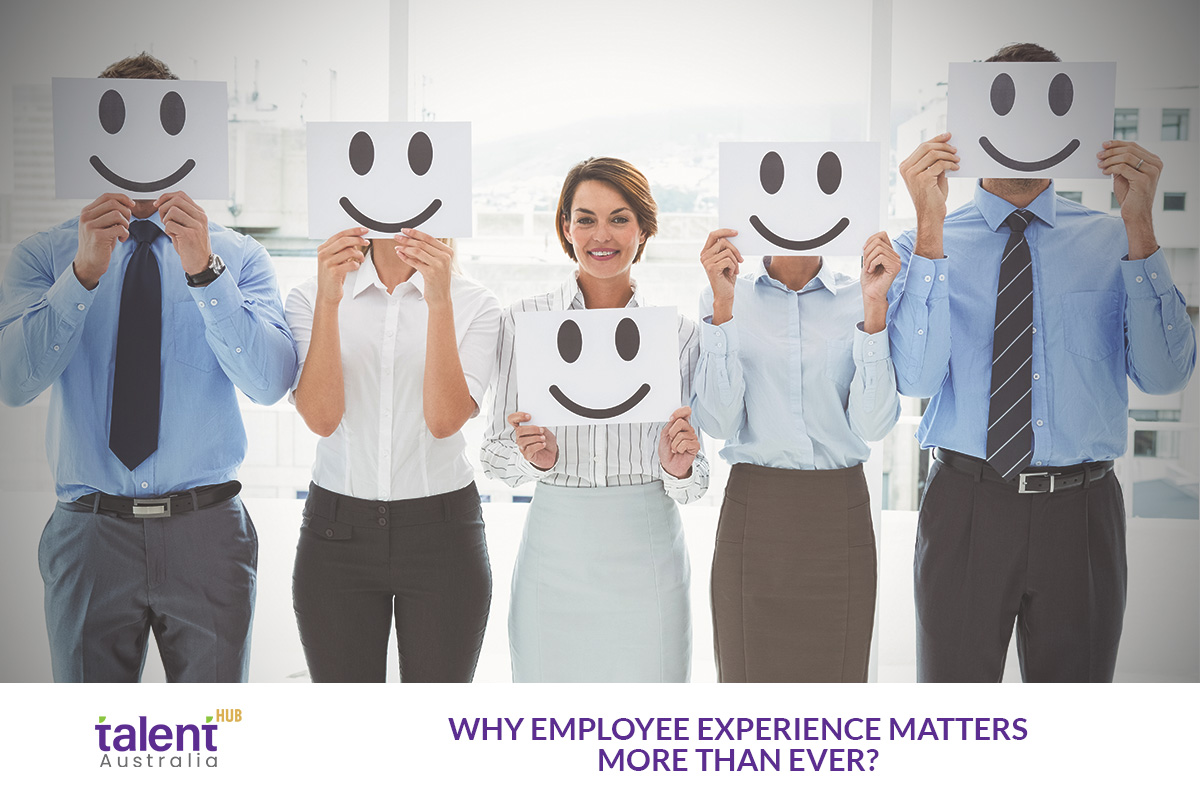
In an increasingly digital and automated world, companies have invested heavily in software, systems and tools to streamline operations. While efficiency has improved, many organisations now face a new challenge: the loss of human connection. This disconnect affects not only how businesses serve customers but also how they engage with their own employees, directly impacting the overall Employee Experience.
In 2025, employee experience is emerging as a critical differentiator. Employers who understand and prioritise the human side of the workplace will lead the way in talent retention, team performance and employer branding. For industries like healthcare, aged care and disability services where relationships are at the heart of service this shift is especially vital.
The Shift Toward Human-Centred Workplaces
Over the past few decades, western work culture has changed dramatically. Job-hopping is now common and people expect to change careers multiple times over their working life. As a result, employee loyalty can no longer be taken for granted.
In this new era, the organisations that stand out are those that treat employees not as “resources” or “capital,” but as human beings with aspirations, challenges and ideas. From language to leadership, every interaction shapes the experience of your workforce.
Why Employee Experience Should Be a Top Priority
Employee experience goes far beyond free coffee and casual Fridays. It is the sum of every touch point an employee has with your organisation from the moment they read your job ad, to their on boarding experience, day-to-day interactions, development opportunities and how they exit.
Here’s why it matters more than ever:
- Retention: A positive employee experience reduces turnover, especially in high-demand sectors like healthcare and NDIS.
- Engagement: Engaged employees are more productive, innovative and aligned with your business goals.
- Reputation: Your internal culture directly influences your external employer brand.
- Performance: Happy, supported employees deliver better service particularly important in people-focused industries.
Ways Employers Can Improve Employee Experience
Build a Digital-First But Human-Centric Workplace
With remote work, hybrid schedules and flexible contracts now the norm, your digital platforms may be the only consistent touch point with your employees. That makes it essential to invest in tools that support both productivity and engagement.
Use HRIS software, performance tracking platforms and communication channels that make it easy for employees to:
- Set clear goals
- Receive regular feedback
- Access training and resources
- Connect with managers and peers
A good digital experience can make employees feel supported even from a distance.
Be Transparent and Share the Bigger Picture
When employees understand the “why” behind their work, they feel more connected to your mission. Transparent leadership builds trust and encourages innovation.
Here’s how to embed transparency:
- Regularly communicate company goals and performance
- Involve staff in decision-making where possible
- Share survey results and act on them
- Recognise ideas from frontline teams and implement them where practical
Inclusion in the broader business vision turns staff into invested stakeholders.
Focus on Onboarding and the First 90 Days
The way you welcome a new hire sets the tone for their entire experience. A strong on boarding process reduces early-stage disengagement, builds confidence and helps new employees integrate faster.
What effective on boarding looks like:
- Pre-start communication with useful information
- Clear expectations and training plans
- Regular check-ins during the first three months
- Access to mentors or buddies for support
Especially in industries where hiring is competitive like allied health or aged care an engaging on boarding process can reduce “ghosting” and increase retention.
Support the Whole Person, Not Just the Role
Employees no longer separate “work” and “life” the way previous generations did. Your organisation should support employees as individuals, not just job titles.
Ways to do this include:
- Offering flexible work arrangements
- Encouraging workplace relationships through social events
- Providing mental health and wellbeing support
- Facilitating personal and professional development
By understanding what your employees truly value, you create a culture where people want to stay and grow.
Make Every Interaction Count
One-on-one meetings, feedback sessions and performance reviews are powerful moments to connect. In a busy environment, it is easy to overlook these touch points but they matter.
Managers should:
- Be consistent with check-ins
- Offer clear, constructive feedback
- Take time to understand employee goals
- Show appreciation for efforts and achievements
Even when a meeting must be rescheduled, communicate the reason and rebook it. Small gestures build long-term trust and loyalty.
Employee Experience in Healthcare and NDIS: Why It is Crucial
In people-driven sectors like healthcare, aged care and disability support, employee experience has a direct impact on client outcomes. Burnout, high turnover or disengagement among staff can lead to reduced care quality, compliance issues and reputational risk.
By investing in employee experience organisations in these sectors can:
- Reduce reliance on reactive recruitment
- Build a stronger workplace culture
- Improve client satisfaction through consistent, quality care
- Retain skilled professionals in a highly competitive market
Talenthub has seen first-hand how employers who prioritise culture, care and connection are the ones attracting and keeping the best people.
Final Thoughts: The Future of Work is Personal
As we move further, it is clear that automation and digital tools will continue to shape how we work. But they cannot replace what people value most: connection, recognition and purpose.
If you want to build a high-performing, resilient team, start with experience. Put people at the centre of your HR strategy not just to boost retention, but to create a workplace where people feel seen, supported and motivated to do their best work. Because in a world full of systems and processes, it is the human experience that truly sets great employers apart.
